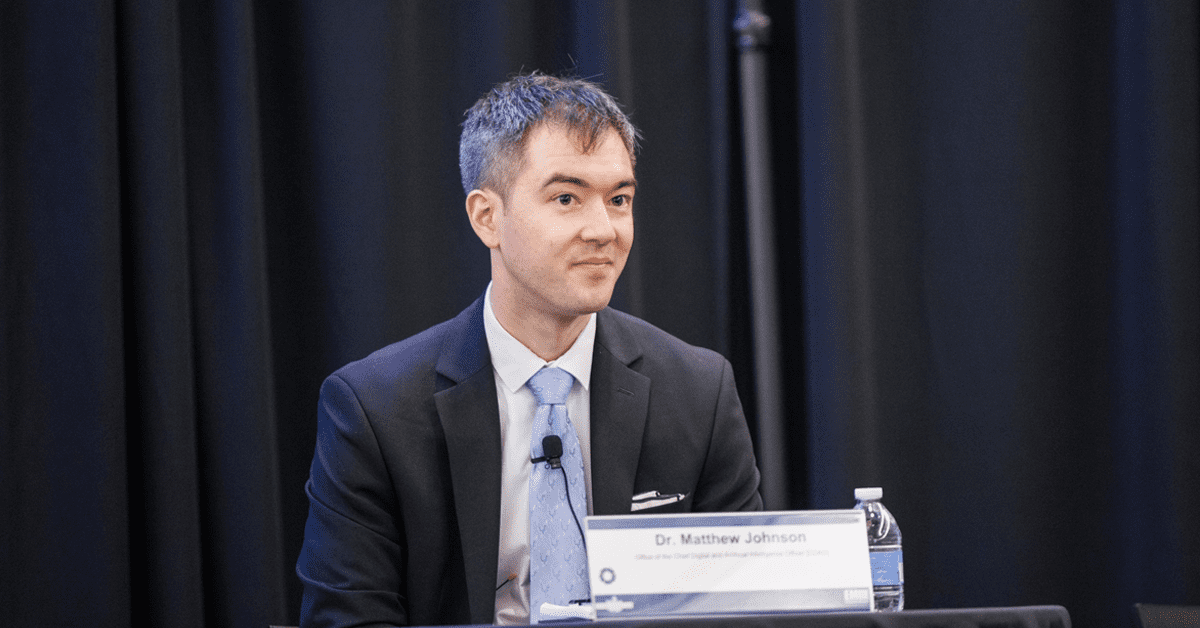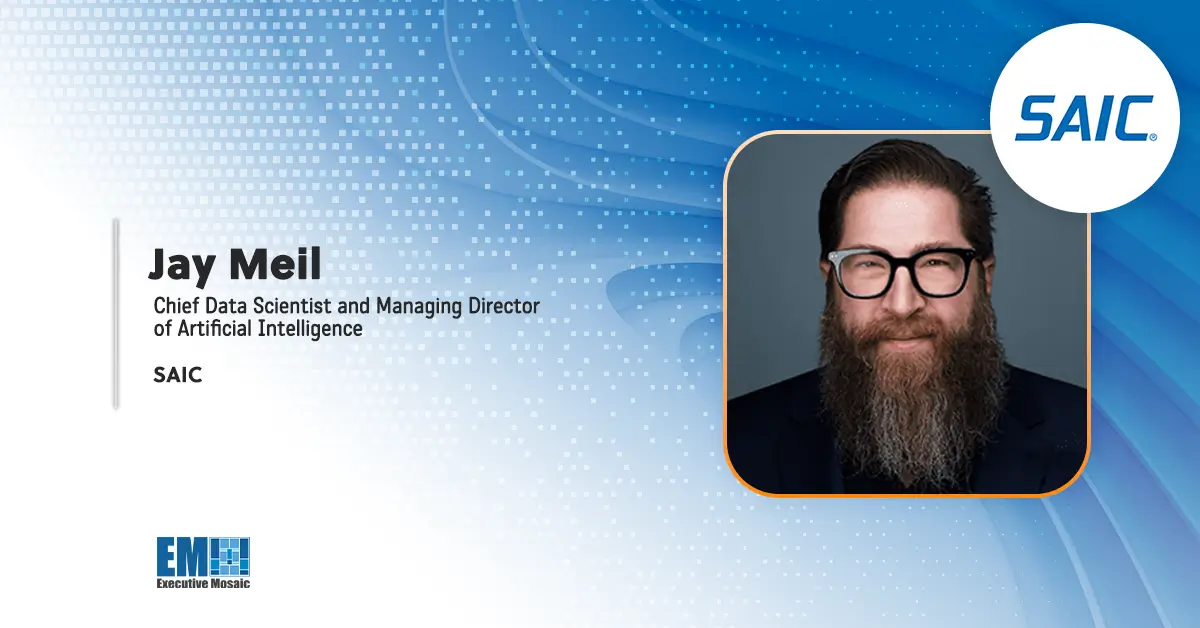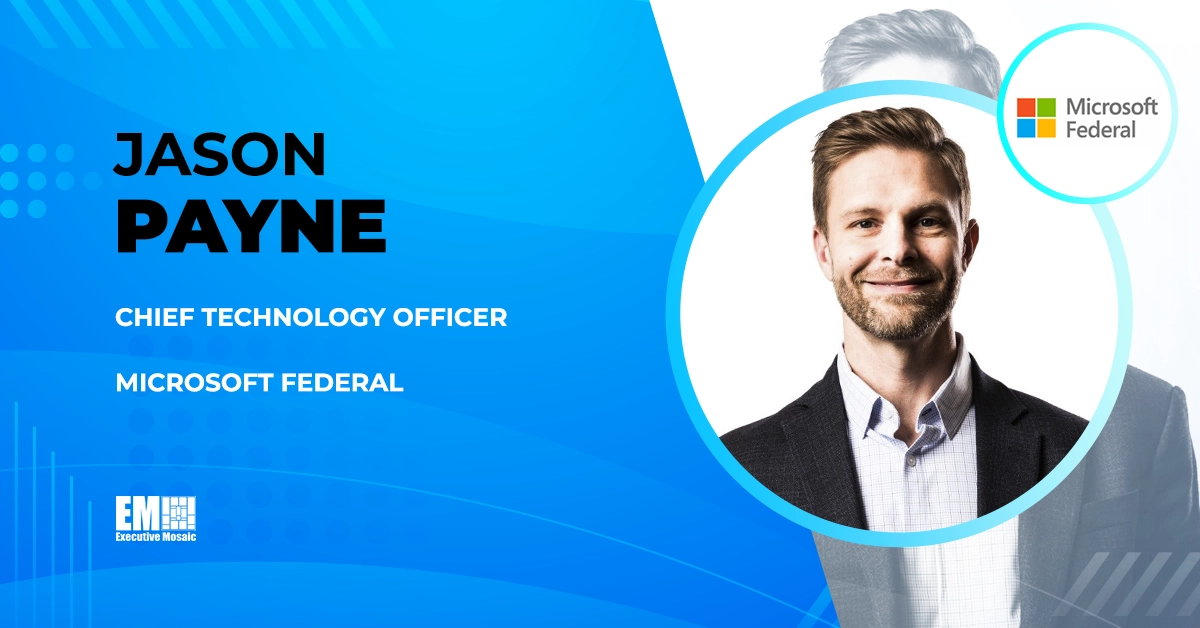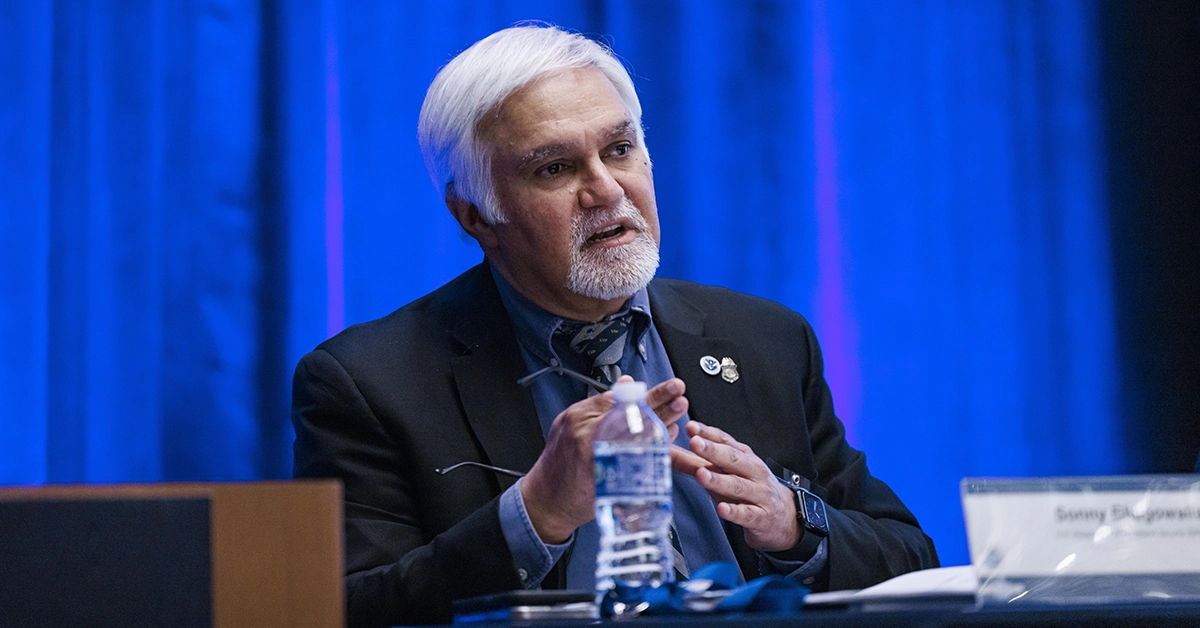Recent momentum in artificial intelligence could be seen as a largely American enterprise, led by domestic companies such as OpenAI and federal government initiatives from the likes of the Department of Defense’s Chief Digital and Artificial Intelligence Office — not to mention multiple presidential executive orders on the matter. However, U.S. government officials have stressed that this is not the case.
“It is a really exciting time for responsible AI in the international space,” said Dr. Matthew Johnson, acting chief of responsible AI at the CDAO. Dr. Johnson addressed a crowd of government contractors on a panel at the Potomac Officers Club’s 5th Annual AI Summit on Thursday.
For a global look at the broader GovCon landscape, save a spot now for Potomac Officers Club’s first-ever GovCon International Summit. This event, held in October, will gather speakers from across the DOD, foreign allies, U.S. combatant commands and more to examine pressing issues like AI from an international lens.
Dr. Johnson said he sees “a lot of momentum” based on events like the AI Partnership for Defense conference, which was held in June 2023 and was co-hosted by the CDAO and the Royal Norwegian Ministry of Defense.
He also cited the Political Declaration on Responsible Military Use of Artificial Intelligence and Autonomy, an agreement introduced at the 2023 Responsible AI in the Military Domain Summit, or REAIM, which occurred last February in the Hague in the Netherlands. The declaration is “a normative framework addressing the use of these capabilities in the military domain,” according to the Department of State, and which “aims to build international consensus around responsible behavior and guide states’ development, deployment, and use of military AI.”
Dr. Johnson said the next REAIM Summit will be hosted in South Korea in September of this year.
“There is really significant momentum and appetite around how we get from these kind of high-level principles down to that implementation, so that there are concrete processes, benchmarks, test and evaluation procedures, metrics, so that you can actually demonstrate how you are aligned to these principles and implementing them,” Dr. Johnson shared.
“I think there’s also a real recognition that this has to be a whole-of-ecosystem effort, spanning not just governments, but also industry, academia, civil society and other impacted stakeholders. It’s a question that impacts all of us,” he continued.
All aspects of GovCon have ramifications on the world stage. Join the global conversation at the inaugural GovCon International Summit in October. Register here!







